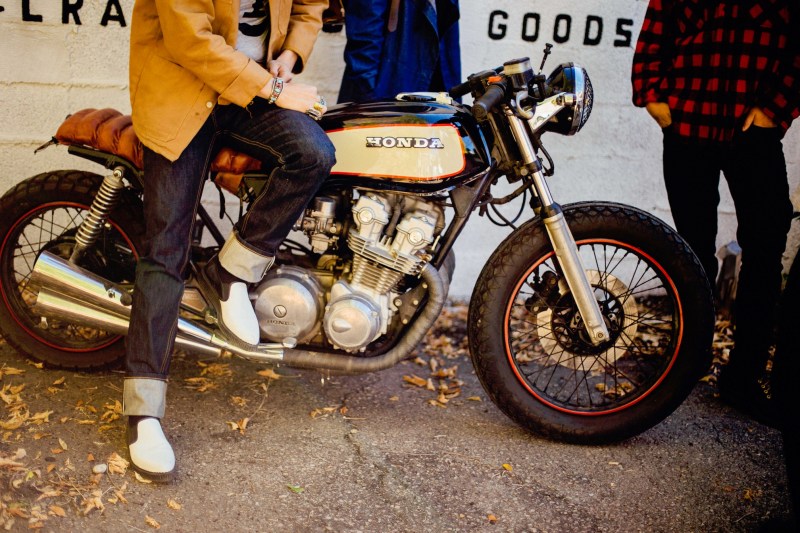
Pants are the unsung hero of your day to day. The right pair of dress pants can keep you looking stellar and ready for anything the office can throw at you. If you are looking to keep it casual and cool, a good pair of jeans will have you walking the path that some of the coolest bastions of Americana walked before you. And for somewhere in between, you have chinos that can keep you bridging the gap between dressy and casual. Of course, none of that matters if your pants don’t fit correctly.
Like everything we write about on The Manual, there are different rules and guidelines for you to live by. And there are some others that you can completely throw aside and rock something different.
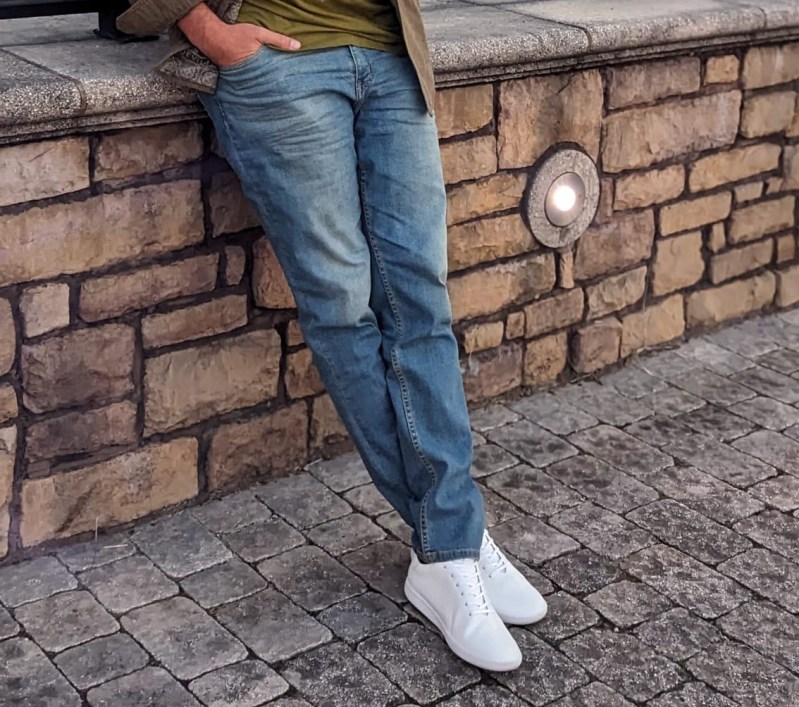
Baggy vs. relaxed vs. slim-fit pants
Back in the 1960s and 1970s, polyester pants started fitting pretty tight and showed off the physique of the man wearing them. Then in the 1980s, denim followed suit. The jeans of the era of the hair bands were tight and cuffed. The 1990s ushered in a new era of baggier fits and a more relaxed feel throughout the entire outfit, particularly the pants.
Then, around the turn of the century, they got slimmer and slimmer until they were seemingly painted on in the last few years. Now, we are seeing a resurgence of the relaxed fit. It can get confusing to follow the trends of how pants should fit if you’re not in the know, but we have you covered.
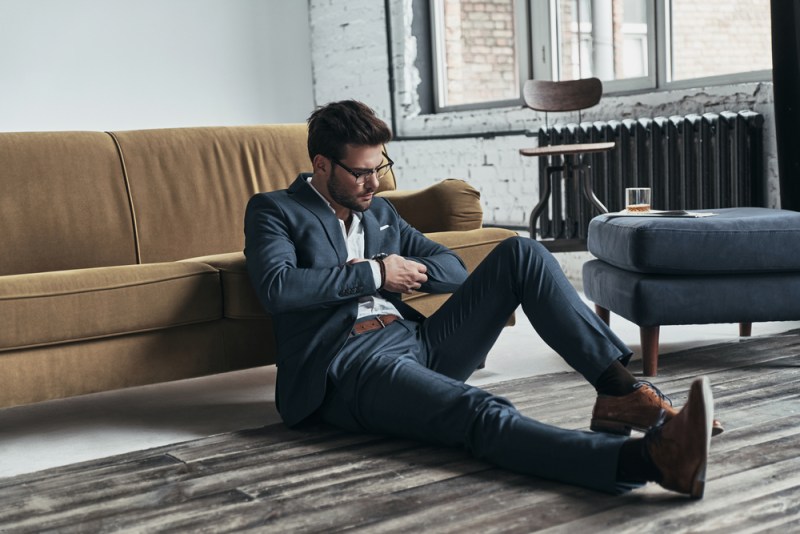
What to keep in mind about the best-fitting pants
Simple is often better in the world of pants
Whether they’re your best-fitting jeans or chinos from one of our favorite brands, like Bonobos. It’s all about finding the fit that works for your body type, but in general, your pants shouldn’t be too baggy, and they shouldn’t be too slim. This differs for everyone, but avoid super wide-legged pants or super skinny trousers. Too slim or too baggy means you are following the trends a little too closely and will have to keep buying new pieces. That’s great for Bonobos but not your wallet.
Proper sizing counts
When shopping for pants, even if you have larger, thicker legs or a more athletic body type, try to stick as closely as possible to your proper waist size, as well as your proper inseam length. The inseam runs from the crotch seam to the bottom of the leg: You can determine your inseam by going to a tailor or even a dry cleaner or alterations specialist and getting this measured, or have someone at home help you out. Use the wrong measurement, and you’ll end up with pants that are too short or too tight. Remember: We’re going for “just right,” not too tight or too baggy.
Different types of pants fit, well, differently
While it’s important to keep your proper sizing in mind when shopping for any pair of pants, keep in mind that dress trousers, often made from wool fabric blends, are going to hang differently than jeans, for instance. Your dress trousers should be cleanly cut, but not as slim as your jeans. Chinos, without the typical creased front leg you’d find on dress trousers, are going to more closely mimic the fit of your jeans. When in doubt, know that straight-leg jeans or chinos look great on most guys, but slimmer cuts tend to flatter taller gentlemen.
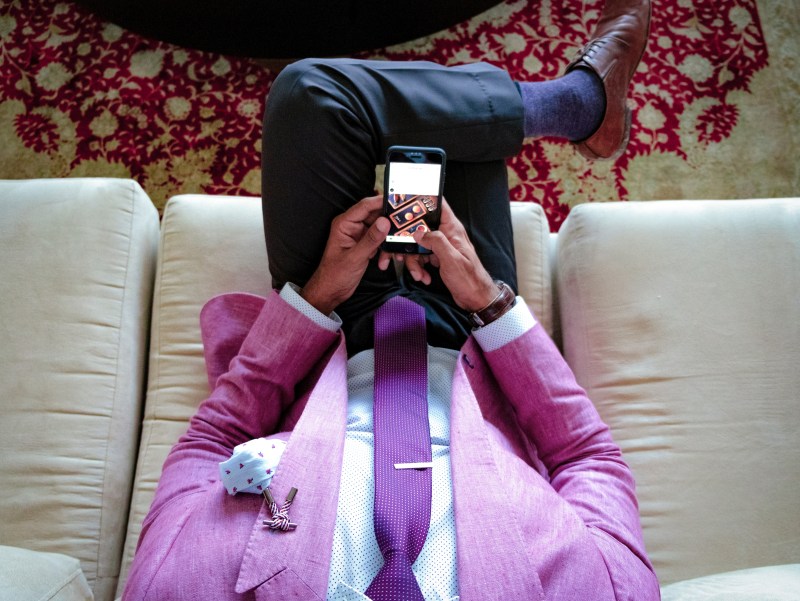
Finding pants that fit you
Shop for your body type
In the world of men’s pants, some serious strides have been made in recent years. Nowadays, retailers from J.Crew to Bonobos stock multiple types of fits in terms of pants, from Slim to Tailored to Straight (and different variations on each). There are also big and tall brands with extended sizing, and you’ll also find companies like State & Liberty that specifically make athletic-fit men’s trousers.
There’s a variety out there for every body type, but again, it always pays off to know your sizing and shop accordingly. Keep in mind, however; every brand uses a different ruler. And what modern fit means for one brand means regular fit for another. Make sure you do your research and either try them on in the store to learn your fit with each brand or take advantage of the size guides provided on most of their websites.
Comfort is key
When you find the right fit in a pair of pants, you know. The waistband should be snug but not overly tight (a good rule of thumb: You should be able to place a finger or two comfortably between your waist and the waistband). The pants shouldn’t be sliding down or off your waistline. The inseam should have a relatively clean “break” (look for pants that hit the top of your shoes without bunching up or showing off too much ankle). And the crotch and seat of your pants shouldn’t be overly tight. What is the best way to figure out how your pants should fit? A matter of trial and error and a matter of comfort at times. You should be able to sit and stand comfortably, too. If they feel good, wear ’em.
Know your style situations
If you’re looking to stock up on multiple pairs of pants at once, consider how often and in what situations you’ll be wearing said pants. Do you need stretch chinos for office and business casual outings? Or are you able to pull off jeans at the office and around town on dates or with friends? Keeping your most-used style scenarios top of mind will allow you to plan accordingly when it comes to finding great-fitting men’s pants.
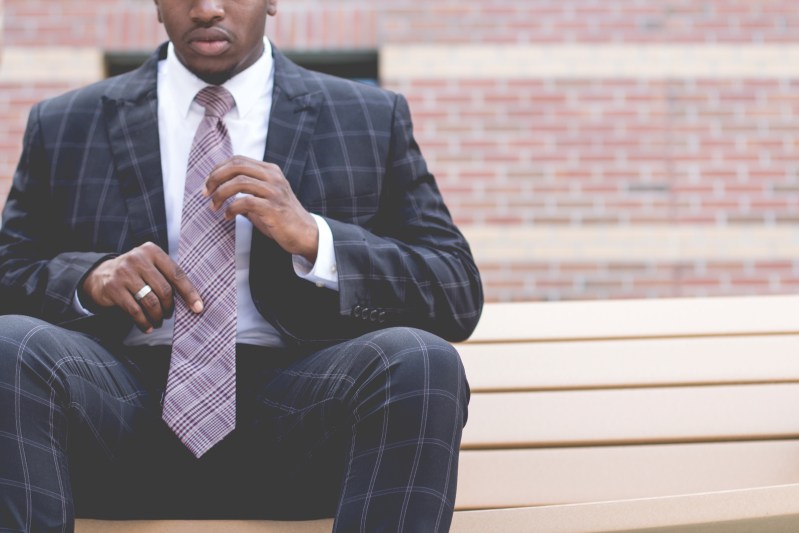
How specific types of pants should fit
As stated above, different pants will have different fits that look good and will work best for you and your closet. Before buying all of your pants in the same fit, consider the kind of pants and the type of situation that you will likely wear them for.
Jeans
These pants will run the gamut of fits and styles as they will likely be the ones that lend themselves easiest to the trends of the day. If you buy into the ultra slim fits or the ultra relaxed fits, you will find yourself purchasing denim more often than you really want to. Therefore, it’s important to keep a core collection of denim that is right down the middle.
Ensure that your denim pants sit where they are comfortable — oftentimes for men, we like to wear them on our hips instead of our waists. You will want to keep them relatively close fit on your thighs and upper legs while opening slightly to allow them to cover the tops of Chelsea boots, rugged footwear, or other high-topped shoes. Your dark dress denim should fit the cleanest of the rest (sit cleanly on your hips or just above them and not a lot of extra at the shoe tops) since you will wear them in dressier scenarios with your sport coats.
Chinos
Here is a rule of thumb that will help you figure out the difference between chinos and dress pants. Sure, you will wear these at the office with sport coats and in business casual situations; same as your dress pants. But they are an elevated substitution for your jeans, so they should fit similarly to them.
These should sit on your hips the same as your denim and should fall to your shoe tops as well. There is a possibility that you will wear these with all the same casual shoes like boots and high tops, so keep them a bit more relaxed at the cuffs to accommodate.
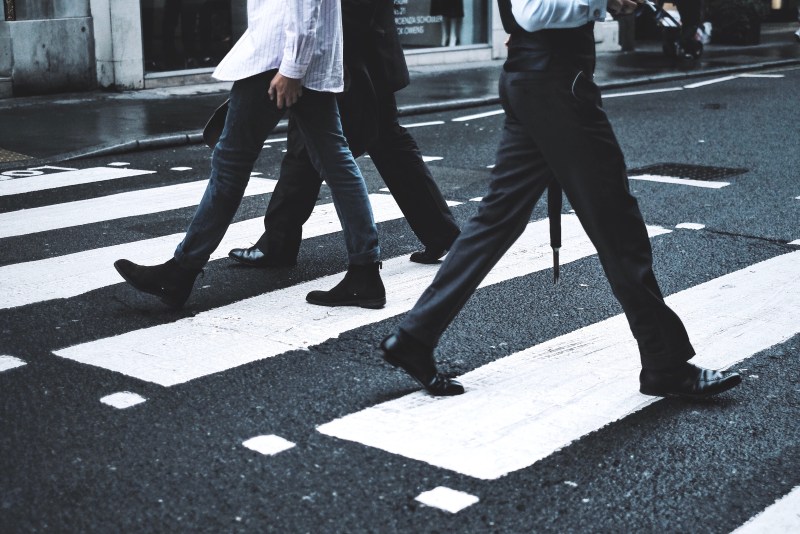
Suit pants
Suit pants are unique in the pants list because they are not solitary items. These pants have a matching jacket that goes with them and therefore they have to keep the uniformity. The color, pattern, and texture matching is pointless if the fit is completely different. If the suit jacket is a relaxed fit, the pants need to follow suit.
How to wear a suit is another topic entirely, but similar to jeans, you want to keep the fit away from either extreme. Even more important for the suit, you want it to last a long time so you don’t have to keep purchasing new suits every time the fashion world decides to change its mind on what looks good and what looks ridiculous. So not too slim and not too relaxed.
Dress pants
Where the chinos are meant to dress up a pair of jeans and make an outfit appropriate for the office, the dress pants are meant to dress down a suit slightly and make it more relaxed for the after-work function or weekend get-together. Because you will sometimes wear these with the suit coat to give your wardrobe a little versatility, you will be best served keeping these fitting the same way as your suit pants so they can fill in when needed.
While every pair of pants is different (naturally), when you find pants you love, pants that look great and feel good to wear, our best advice is to stock up. It’ll become an easy process the further along the road you go on your style journey.



